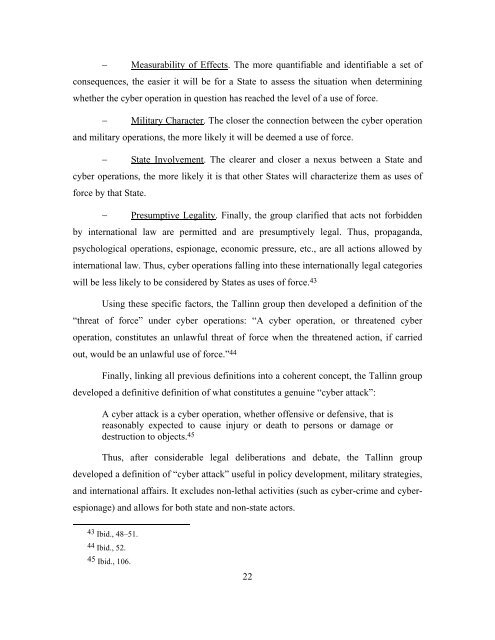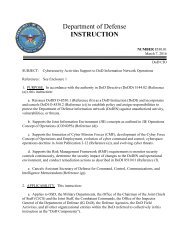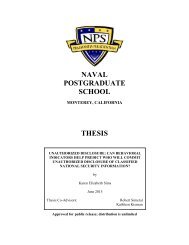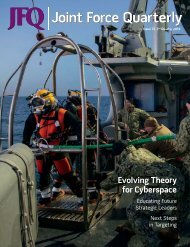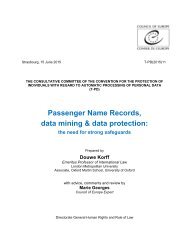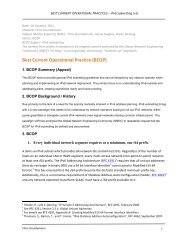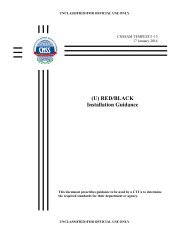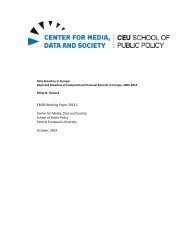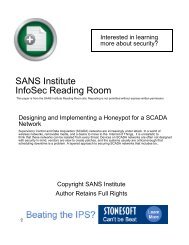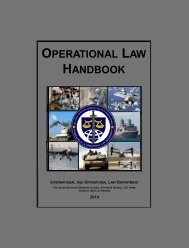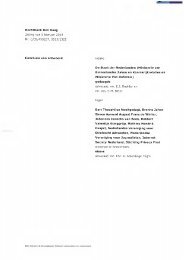SCHOOL THESIS
?view&did=788526
?view&did=788526
Create successful ePaper yourself
Turn your PDF publications into a flip-book with our unique Google optimized e-Paper software.
Measurability of Effects. The more quantifiable and identifiable a set of<br />
consequences, the easier it will be for a State to assess the situation when determining<br />
whether the cyber operation in question has reached the level of a use of force.<br />
<br />
Military Character. The closer the connection between the cyber operation<br />
and military operations, the more likely it will be deemed a use of force.<br />
<br />
State Involvement. The clearer and closer a nexus between a State and<br />
cyber operations, the more likely it is that other States will characterize them as uses of<br />
force by that State.<br />
<br />
Presumptive Legality. Finally, the group clarified that acts not forbidden<br />
by international law are permitted and are presumptively legal. Thus, propaganda,<br />
psychological operations, espionage, economic pressure, etc., are all actions allowed by<br />
international law. Thus, cyber operations falling into these internationally legal categories<br />
will be less likely to be considered by States as uses of force. 43<br />
Using these specific factors, the Tallinn group then developed a definition of the<br />
“threat of force” under cyber operations: “A cyber operation, or threatened cyber<br />
operation, constitutes an unlawful threat of force when the threatened action, if carried<br />
out, would be an unlawful use of force.” 44<br />
Finally, linking all previous definitions into a coherent concept, the Tallinn group<br />
developed a definitive definition of what constitutes a genuine “cyber attack”:<br />
A cyber attack is a cyber operation, whether offensive or defensive, that is<br />
reasonably expected to cause injury or death to persons or damage or<br />
destruction to objects. 45<br />
Thus, after considerable legal deliberations and debate, the Tallinn group<br />
developed a definition of “cyber attack” useful in policy development, military strategies,<br />
and international affairs. It excludes non-lethal activities (such as cyber-crime and cyberespionage)<br />
and allows for both state and non-state actors.<br />
43 Ibid., 48–51.<br />
44 Ibid., 52.<br />
45 Ibid., 106.<br />
22


